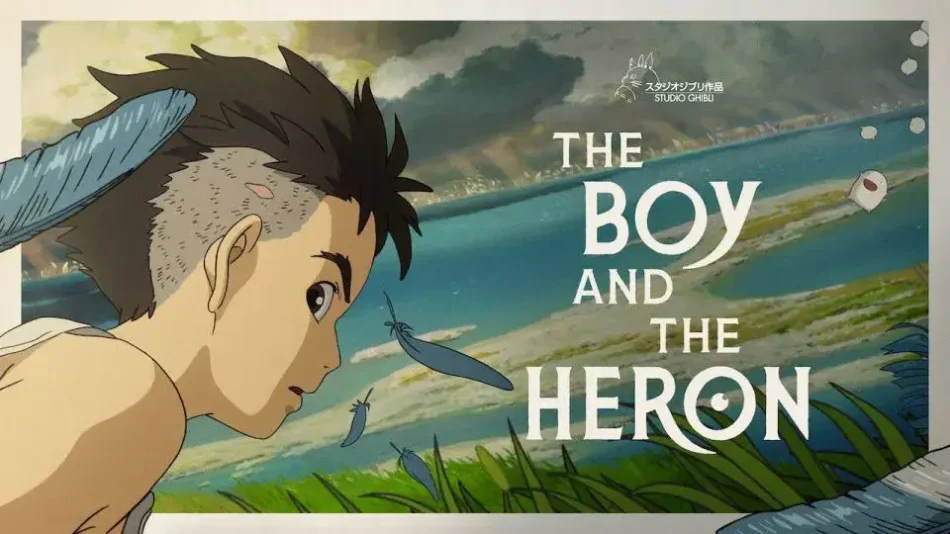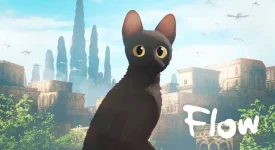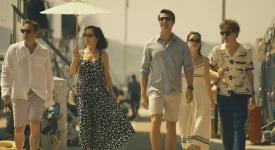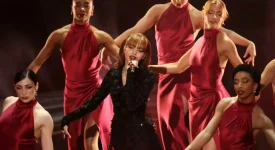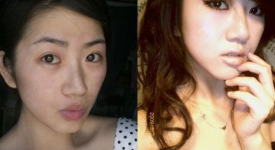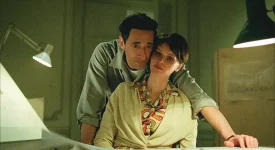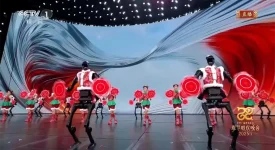(may contain spoilers)
The Boy and the Heron
Douban rating: 7.5
Director: Hayao Miyazaki
Douban Comments: “Since the story is set during World War II, and the protagonist’s family – despite the war – can still get canned food, sugar, and cigarettes thanks to their military factory ties, I really can’t believe there’s no political metaphor in this fantasy world.
A new world built on malice… Greater East Asia Co-Prosperity Sphere, maybe?
The guide to the other world is a grey heron. In Japanese, ‘heron’ (sagi) sounds the same as ‘fraud’. The pelicans who are tricked into the new world find there’s no fish – just like how settlers lured to Manchuria realized it was nothing like the propaganda promised.
The parrots trapped in the other world represent the army. Eventually, they go berserk and destroy the ‘new world’. But when those same parrots move to a different world, they become gentle again.
It’s not the parrots that were the problem – it was the environment.”
“No wonder there was so little promotion before the release. Compared to commercial animations that cater to the mainstream market, this is clearly a very personal and defiant autobiographical film. At eighty years old, Hayao Miyazaki projects his life experiences into a fictional story, sincerely analyzing himself and sharing the deep insights he’s gained from a life full of ups and downs.
Like most of Studio Ghibli’s films, it uses fantasy and adventure to tell a story of personal growth. Though the expression is obscure and the metaphors are complex, there’s no need to overanalyze every scene. The value lies in savoring and reflecting on it carefully.
As the boy follows the heron into the tower, the audience, too, falls into the creator’s subconscious. This final film feels like a Miyazaki collection. The thirteen blocks represent the thirteen masterpieces of his career, together building the spiritual sanctuary he’s cultivated over the years. The final collapse of the utopia symbolizes farewell, but it also carries Miyazaki’s message to younger generations: a perfect utopia doesn’t exist. In the end, we all have to return to the chaotic, imperfect real world. Avoiding or resisting it is pointless. The true heroism lies in loving life even after recognizing its harsh truths, and in courageously accepting the life you’ve chosen.”
“Indeed, every director who grew up in the Showa era faces the same question in their later years: how to reconcile with the Showa era? The castle built by the great-uncle undoubtedly represents the values of Western democracy and scientific rationality that the Meiji period aspired to – dreams of a wealthy and powerful nation. When this castle is destroyed by militarism, the protagonist doesn’t yearn to rebuild his ideal nation. After witnessing the destruction caused by war, what he truly needs is the healing of freedom. The mother lost in the flames becomes a nightmare, but in the fantasy world, she is reborn from the fire and saves the child’s life. The labyrinth-like adventure, the ambiguous guide, and the temptations faced along the way lead to the final question: transitioning from the grand collective narrative to personal truth and self. This is not the failure of idealism, but the courage to coexist with evil. A land scarred by destruction and sin still endures, and death cannot overcome new life. In this film, we face a calm yet contradictory Miyazaki, but what he has always insisted on is this: the courage to live is not about forgetting painful memories, but about keeping them.”
Mufasa: The Lion King
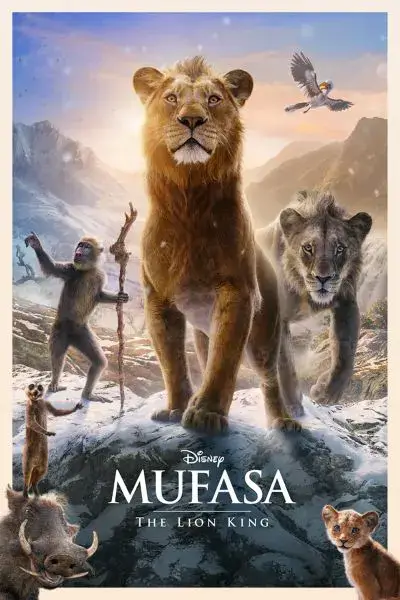
Douban rating: 6.6
Director: Barry Jenkins
Douban Comments: “Mufasa’s story may follow a familiar pattern, but if you look at it from Scar’s perspective, it feels quite different.
Scar was timid from a young age – he didn’t even have the courage to save his own mother. He was never the kind of man who could earn recognition. The only person who ever gave his life meaning was Mufasa, because Mufasa once saved him. In a way, his brother was his whole world.
That’s why Scar couldn’t stand the thought of Mufasa falling in love with the girl he liked. That’s why he couldn’t accept being abandoned by him. To Scar, Mufasa’s actions felt like betrayal.
That betrayal shattered Scar’s sense of purpose. Destroying Mufasa meant destroying himself too. But even then, how could he just stand by and watch Mufasa die at the hands of an enemy?
Maybe, in that moment when Scar risked his life to save him, he finally saw who he really was deep inside.
In the end, Mufasa had everything the world could offer, while Scar was left with nothing – forced to walk away. Being cast out and wandering the world – that was Scar’s fate.”
“Simba’s son is too adorable – who doesn’t love watching a little lion cub tumble around? Hope they didn’t make that kid shout too much though. Also, I cracked up when he came back from grandpa’s story time with a new sibling – surprise second child!
The whole ‘brother saves the family’ thing was sweet. No long-lost outsider brother swooping in to steal everything this time.
The princess falling for the smart and kind one – classic. Meanwhile, our golden-boy prince (athletic, noble, top of his class) has to leave the stage with a sigh. Taka (Scar) was basically in ‘quietly watching and getting emotionally wrecked’ mode the whole time.
His character shift was fast though – from loyal brother to villain just because of a breakup/rejection? And then straight into scheming court official mode? A bit sudden. But as a prequel, it actually fills in a lot of blanks pretty well. Still felt like it ended too soon – I wanted more.
It’s not exactly The Prince of Egypt vibes. I thought it was going to be a story of jealousy and power struggle, but Mufasa really just went and built his own new kingdom from scratch – self-made king vibes. At its core, it’s still a ‘rivals who were once best friends’ story. And in the end, when Taka pulls Mufasa out of the water again, it’s clear – there’s still love hidden in all that hate.
The visual effects were amazing – looked like they got real animals to act, seriously. And the songs? Actually pretty good. The whole road trip plotline felt a bit rushed near the end though.”
“This film is a prequel to Simba’s story, focusing on his father – how he rose from an orphan to become king, and how his relationship with Scar changed over time. That aspect really reminded me of Transformers One, especially the dynamic between Optimus Prime and Megatron. It’s a similar approach, and it helps explain how Scar became the character we know today.
The story is told in a road movie format, with the white lion villain pursuing them like a predator, invading untouched lands – which gave it a bit of an American Western vibe. But at its heart, it’s really about the shifting relationship among the three main characters during the journey.
The second half, with its natural wonders and adventure elements, is stronger than the first. There are more connections to the original Lion King that start to emerge through little details.
Disney clearly kept younger audiences in mind, using a dual-narrative structure – a story within a story – to gently unfold the plot. It highlights the power of storytelling and the idea of passing down wisdom. Still, I felt the pacing would have been tighter if they’d left out the parts with Simba’s daughter.
I watched the dubbed version, and the sudden switch to singing in Chinese sometimes felt a bit jarring. The original English version would likely feel more natural and immersive.”
Kung Fu Panda 4
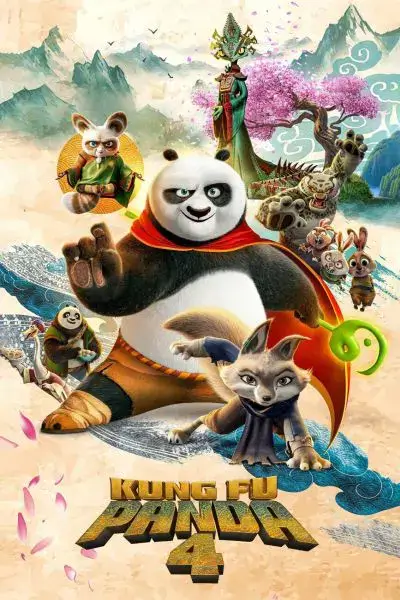
Douban rating: 6.3
Director: Mike Mitchell
Douban Comments: “This sequel feels overly formulaic and mass-produced. There were a few laughs here and there, but overall, nothing really left a strong impression.
They brought back villains from the previous movies all at once, giving them extra screen time and forcing connections to earlier scenes and lines. It felt like they were just trying to shoehorn in a successor for the Dragon Warrior, using nostalgia from the earlier films as a crutch.
The new villain wasn’t very memorable either – even their main power was just copying the fighting styles of past villains. So, the final battle ended up feeling pretty lazy and unexciting.
The Furious Five didn’t even appear. Was it because they couldn’t afford the original voice actors?
Overall, it’s not terrible – I wouldn’t say the 90 minutes were a complete waste – but it’s definitely not great. A solid 3 out of 5.
That said, for a big franchise like Kung Fu Panda, which Chinese audiences generally love, continuing in this direction just isn’t going to work.”
“Overall, this feels a lot like Shrek 4 back in the day. It’s not a complete cash-grab – there’s still some entertainment value – but the commercial intent is a bit too obvious. It really feels like they’re just squeezing out whatever’s left of the IP’s value.
The story is extremely formulaic, and the pacing feels rushed, like they’re whipping the plot forward just to get it over with. Every scene is just trying to get from point A to point B as fast as possible. You can almost see the animators thinking, ‘Let’s just finish this and clock out’. Even the Furious Five only show up in a post-credits text mention.”
“I watched the original English version. The plot is pretty predictable – it’s easy to guess that Zhen would switch sides, and of course she ends up being the next Dragon Warrior.
The Chameleon is basically a fusion monster. She brings back the villains from the previous movies just to learn their skills – and to cash in on some nostalgia. The final showdown felt rushed: after copying a few moves, she just turns into a big monster and starts smashing things.
Still, as a popcorn movie, it was quite enjoyable. The tone is light and funny throughout, with lots of humorous moments – like Po meditating under a tree but only thinking about food, Zhen’s underworld crew doing good deeds with bad intentions, and Po’s dad pretending to be a kung fu master.
The fight scenes are smooth and well done, especially the chaotic bar fight on the cliffside. The animation and environments are nicely done too – Juniper City blends Eastern and Western styles. It reminded me of a mix between the castles from The Lord of the Rings and Lake-town beneath the Lonely Mountain, while the streets felt more traditionally Chinese.
Sure, it lacks deeper themes. It tries to touch on family (with Po’s two dads risking everything to save him), friendship (Zhen’s change of heart), and a simple ’embrace change’ message – but honestly in the end, with the solid action, special effects, and a bit of nostalgia, I’d still say it’s worth watching.”

